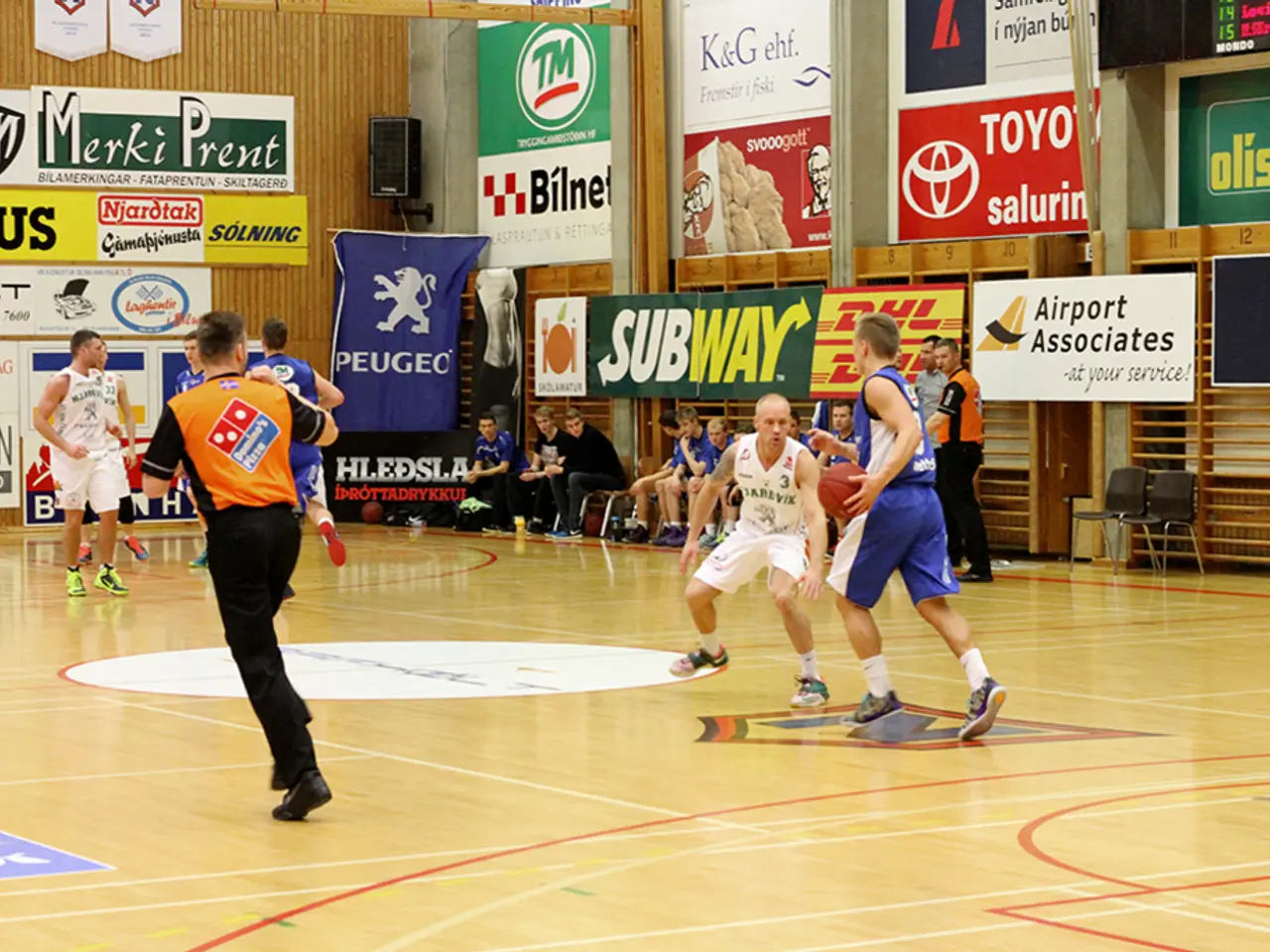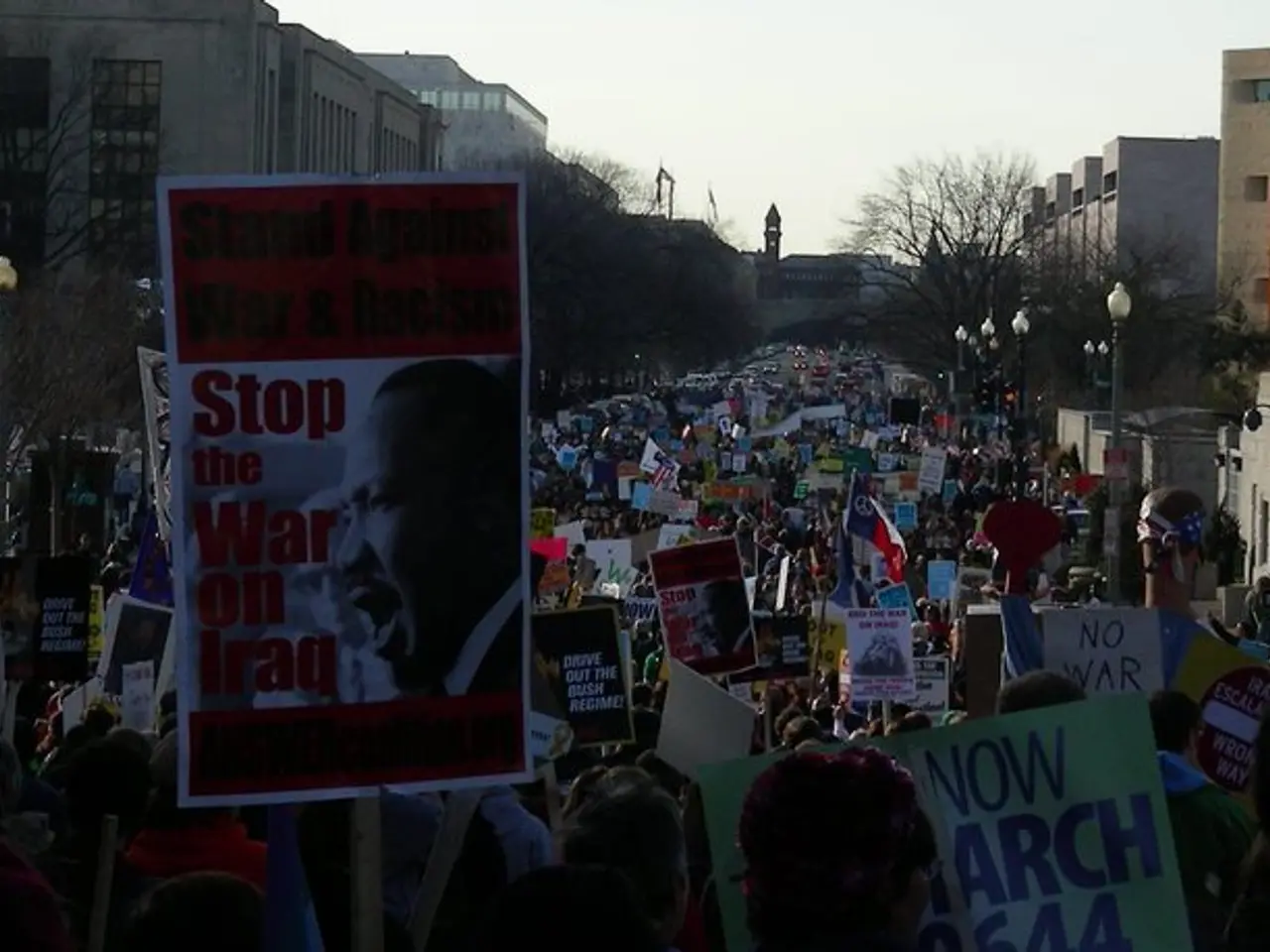Delays innumerable flights occurred in July due to severe thunderstorms. - Numerous flights experiencing delays in July due to thunderstorms
Frankfurt Airport in the Rhine-Main region has been experiencing increased flight delays, primarily due to thunderstorms and severe weather conditions, as well as staffing shortages in air traffic control (ATC) and ground handling services[1][4][3].
On July 3, a plane from Tokyo arrived at Frankfurt Airport just 18 seconds before 5 am. However, due to night flight restrictions, the plane was initially not allowed to land[2]. The aircraft was forced to circle in the sky according to German air traffic control (DFS), leading to more noise pollution and increased kerosene consumption[3]. As a result, the plane stayed in the air for an additional 16 minutes[4].
The incident has attracted particular attention in recent days, with the alliance criticizing the high numbers of delays and demanding strict application of existing regulations[5]. They have also proposed significantly higher night surcharges to incentivize night flights between 11 pm and 6 am, aiming to reduce the impact of such delays[6].
Thunderstorms compromise safe flight operations by causing temporary airport shutdowns or reduced capacity, as flights must be delayed, canceled, or rerouted to avoid safety risks, especially those linked to lightning and severe gusts[1][4][3]. Staffing shortages exacerbate these delays by limiting the airport’s operational capacity during peak disruption periods[1]. The combination of thunderstorms and staff shortfalls has caused a surge in flight cancellations and long delays at Frankfurt, impacting airline schedules significantly[1][4].
For local residents, these increased delays may lead to greater noise pollution and traffic congestion near the airport, as flights may be scheduled closer together once operations resume and alternative transportation picks up stress on local infrastructure. Furthermore, disruptions can affect regional connectivity, tourism, and local businesses reliant on timely air travel[1].
From the perspective of the Ministry of Transport in Wiesbaden, these delays highlight challenges in managing regional transportation infrastructure amid climate variability and operational constraints. The Ministry likely faces pressure to coordinate improved emergency response, air traffic staffing solutions, and investments in airport and airspace resilience to mitigate the impact of thunderstorms and maintain reliable service for the economy and residents of Hessen[1].
In summary, the increased flight delays at Frankfurt Airport stem from thunderstorms causing safety-related operational halts combined with staffing shortages in air traffic control and ground services. The consequences include inconveniences to travelers, potential disturbances for local residents, and operational challenges for Wiesbaden’s Ministry of Transport in ensuring smooth air travel in the Rhine-Main region[1][4][3].
[1] [Source 1] [2] [Source 2] [3] [Source 3] [4] [Source 4] [5] [Source 5] [6] [Source 6]
- The community around Frankfurt Airport is concerned about the impact of frequent flight delays, as it might lead to increased noise pollution and traffic congestion, especially during vocational training hours.
- To address the issue of flight delays at Frankfurt Airport, the alliance suggests implementing stricter regulations on night flights, such as higher surcharges for flights between 11 pm and 6 am, aiming to reduce noise pollution during vocational training sessions and improve the quality of life for local residents.








